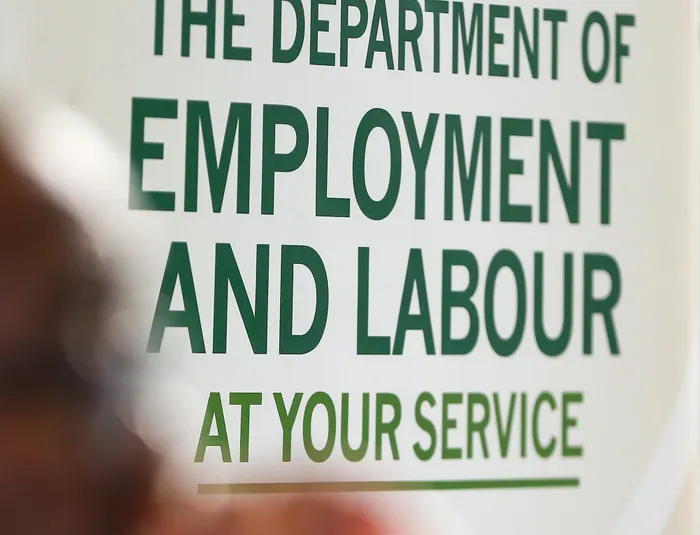Employment Equity reporting begins for South African businesses amid legal challenges

All companies with 50 or more employees must begin submitting their 2025 Employment Equity (EE) reports from September 1 in line with regulations published earlier this year by the Department of Employment and Labour.
Image: Leon Lestrade / Independent Newspapers
All companies with 50 or more employees must from Monday, September 1 begin submitting their 2025 Employment Equity (EE) reports, in line with regulations and sectoral targets published by the Department of Employment and Labour.
The reporting window will be open until January 15, 2026 for online submissions. If submitting manually, the deadline is October 1, 2025 according to the department.
The start of reporting comes just days after the Pretoria High Court dismissed an urgent application by the National Employers’ Association of South Africa (NEASA) and Sakeliga to challenge what they called “new employment equity quotas”.
According to the organisations, the sectoral targets constitute strict hiring quotas based on race and other demographic ratios.
The organisations have confirmed they will appeal the ruling directly to the Constitutional Court. “We will not stop until this harmful and unjustified state intervention is reversed or rendered moot,” they said in a joint statement. They are also pursuing Part B of their case, which seeks to have sections of the Employment Equity Act itself declared unconstitutional.
Employment and Labour Minister Nomakhosazana Meth welcomed the High Court’s ruling, calling it “a victory for equity, justice, and the rule of law.”
“It affirms that the department has acted within its legal mandate to advance transformation in the workplace. We urge all employers to comply with the Employment Equity Regulations and to prepare for the submission of their 2025 EE reports. The time for meaningful change is now.”
The Department said the ruling affirmed the “legality and procedural integrity” of the Employment Equity Regulations, which are designed to promote equitable representation across all sectors of the economy.
Judge Graham Moshoana, who delivered the ruling, rejected the applicants’ claims of disruption, stating: “Numerical goals are set by the designated employers and not the Minister. The Minister has already done so and no untold mayhem is alleged to have taken place.”
The Congress of South African Trade Unions (COSATU) also welcomed the judgment, describing the legal challenge as misguided.
“We are pleased that their challenge has been dismissed as legal adventurism,” said COSATU Parliamentary Coordinator Matthew Parks.
“It is not surprising that in this year when dog whistling has been taken to extraordinarily dangerous levels, that NEASA and Sakeliga could not resist the temptation to jump upon this bandwagon of ill-considered rashness and racial mobilisation.”
COSATU said the Constitution requires the state to pursue measures to address the discriminatory legacies of the past.
“The Employment Equity Act is nearly as old as our hard-won democracy and has stood the test of time,” Parks said.
He added that the 2023 amendments to the Act followed “extensive engagements between labour and business at Nedlac and public hearings at Parliament” and were intended to “strike a fair balance between easing administrative burdens on SMMEs, reflecting South Africa’s demographic diversity, and nudging employers to do better.”
The trade union federation also rejected claims that the regulations will lead to job losses. “Employment Equity accommodates all South Africans, of all races and genders, including white males. Nowhere does it provide for any worker, of any colour or gender, to lose their job. Any statement claiming they do should be taken as seriously as the flat earth society,” Parks said.
NEASA and Sakeliga, however, insist that the new system appears unworkable. They argue that “in reality general compliance with the quotas is impossible” and that no serious business “can be expected to run their hiring off a government spreadsheet.”
They have advised employers to submit their reports under protest, adding disclaimers that the five-year numerical targets are “obviously impossible to meet”.
While the legal dispute continues, the obligation on employers is immediate. The Department has reminded businesses that compliance is both “a legal obligation and a moral imperative in building a more inclusive economy.”
With reporting officially underway, South Africa’s workplaces face the practical test of implementing a law that government and unions say is essential for transformation, but which sections of business view as unworkable and unconstitutional.
Related Topics: